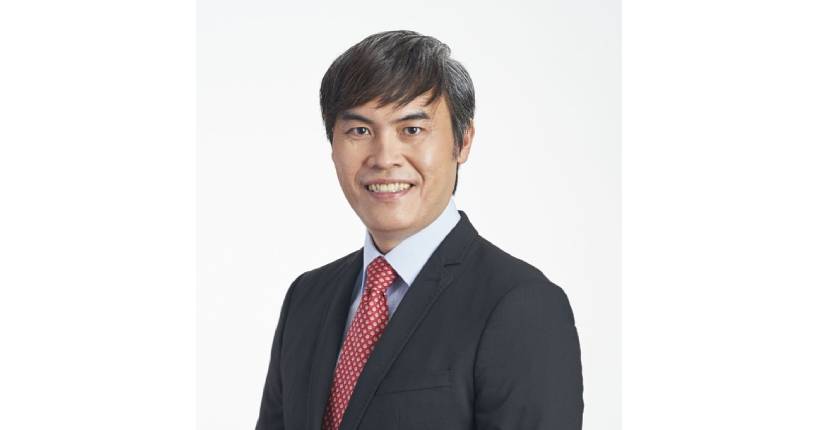Starting on a new career, whether you are a newbie who just graduated and are now just embarking on a new job, or as a middle management staff who’s thinking of changing career midway, always comes with a fair set of challenges and issues. In this career series, we speak with experts in various fields to get their tips on how to ease into a new job, what you should do to excel and how to further your career prospects.
In this third interview, we speak to Edwin Koh, Vice President, Group Organisation & Talent Development of the Lazada Group for his views on career tips. At Lazada Group, Edwin works hand-in-hand with key stakeholders to explore various methods to solve complex organisational challenges through people-related solutions. He holds a Bachelor of Business Management from Singapore Management University (SMU), with double majors in Strategy and Human Resource Management.
1) Share with us what do you do in your work?
My role in Lazada is to ensure that all employees across the six countries have the best learning and development opportunities that they can have in the organisation. I also help to ensure a great employee experience for each and every employee so that they can feel inspired, motivated, connected and empowered to become the best version of themselves while growing with the company.
2) What are the things to know when a jobseeker starts out on a new career?
First and foremost, know what are the trends in the industry or in the company. You can do so by speaking with people, reading news articles or watching online videos to find out a bit more. The second thing is to understand the past, present and future. Understand what happened in the past so that you can get the context of things, what has been done right, which would then give you more insight into the things happening in the present and with that you can form your own judgement about what would happen in the future at the company.
The third thing is to build strong relationships, as it is very important to know who are the key stakeholders in the organisation and building relationships with them can help you do your job more easily. Last but not least, know what are the different critical factors that will help you achieve success but at the same time, also know what will pull you down. These are some of the things that are very important for anyone who is starting out a new career.
3) What do hiring managers look for in candidate selection?
For me as a hiring manager, the first thing I will look out for are the key strengths the candidate has to be competent in the required job role. The next thing I would look for are other skill sets or competencies that the person has to contribute to the team and to the organisation. The third thing I would look out for would be similar work experiences. Additionally, I would also look at the candidate’s attitude, drive and whether he or she has the learning mindset. The team and culture fit is also very important, but having a diversity of new perspectives and insights can also greatly help to increase the creativity in the workplace and bring the productivity of the team to the next level.
4) How can a new staff excel in the first 100 days of their new role?
To me, “it’s as simple as ABC”. A stands for Assimilate, B stands for Build relationships and C stands for Clarity. Firstly, you need to get yourself assimilated into the new environment and culture. Observe, be involved in all the company’s events and programmes and understand its working processes. It can be very different from what you’ve experienced in your previous organisation. So immerse yourself into the new culture and then learn; you have to unlearn, learn and then relearn again. B stands for Build relationships – meet as many people as you can as this will greatly help to expand your network and identify the key stakeholders in the organisation to build relationships with as well.
Last but not least, is to have Clarity. I see a lot of new hires coming to the company being unsure of what they need to do because they don’t have that clarity. It’s very important when you join a new organisation to speak to your line manager and have an open conversation, set clear expectations, know what you need to do for the next one week, the next month, and the future. Get support, get feedback and align the expectations at the end of the day because that will also help you when it comes to performance rating and feedback. So, three very simple things, A for Assimilate, B for Building relationships and C, having the Clarity.
5) How can you make the next career move based on your strengths?
First of all, it’s very important to know the different types and aspects of strengths that you have as a person and that the strengths can be in the form of skill sets, knowledge or even your own individual personal strengths. So by knowing yourself it will give you more self-awareness on what you’re good at and what areas of improvement that you need to work on. The second step is to continuously sharpen your strengths and constantly update yourself. So, for example, if one of your strengths is project management, then go for accreditation, go for certification or training to dive in deeper into this particular aspect. By doing so, it would give you more credibility.
Of course, the next step is to find roles that will help you exhibit the strengths that you have, and that can be done by speaking to people in the industry, finding out more about what this role entails, looking at the JD, talking to recruiters and getting a better understanding. And, if the time comes for an interview, then you need to showcase your strengths and sell what you’re good at to your next potential employer.
6) How can you develop yourself for the next promotion?
For this question I would have five P’s. The first P is purpose and that is to know your purpose and understand why you want to have that promotion. Try to have a personal connection to your purpose on why you want the promotion. By doing so, it would give you the ability to take charge of your own career goals and make the right decisions. The second P would be personal impact. In terms of promotion, it’s very important to make a positive impression, build trust with people and show your self-confidence. The third P is super critical, and that is people. Know who are the key stakeholders in the promotion process and understand what they value, and you need to build a good relationship with them.
The fourth P would be performance. Deliver great consistent results, have a good track record and showcase yourself as a staff who’s always giving your best, then everyone will know you are the best person for the next promotion. And the last P is to be proactive. I think as an individual having the right mindset is very important, and by being proactive you constantly put yourself forward to achieve the goal that you want. Persevere, don’t give up and keep trying to make it happen.
7) How can leaders and managers become better coaches?
First of all, both leaders and managers would need to firstly believe that there are benefits to being a coach because not everyone knows that being a leader or a manager, you can also play the role of a coach right by knowing the benefits. One way to become a better coach is to use psychometric or profiling tools to anchor the conversation with your employee, which will help you as a leader or a manager to know about the strengths or areas of improvements or even blind spots of the employee.
Another important tip or skill for a good coach is to be able to ask good questions that would help your staff to start a journey of self discovery where they will be able to come up with their own ideas and solutions and be independent and not dependent on you. Some of the good traits of being a coach is to have patience and also show empathy for your staff which are critical traits for a good leader or manager. Last but not least, keep fine tuning and constantly get feedback from team members to see if what you are doing is the right way to help them in their career.
8) How has job search changed in the new normal and what can job seekers do to enhance their chances of landing a job?
In the new normal, especially within this COVID-19 pandemic period, all things have gone virtual. As a job seeker, it’s very important to know what are the various online channels to look for jobs, for example, LinkedIn, JobStreet or government websites. Secondly, create a winning online profile; now more than ever, more recruiters are asking for your LinkedIn profile, so it’s critical to have a good virtual profile detailing your past work experiences set up.
When you get an interview, different employers might be using various platforms for the interview, so it’s important to know how to operate all these different tools, whether it be Zoom, Microsoft teams or WhatsApp. It’s also important to know how to present yourself virtually online, so rehearse where to put your camera, your lighting, your sound, and ensure that all the hardware is working well so that you can concentrate on making a good impact online and delivering a great virtual presence to your recruiter. Last but not least, as with all face-to-face or virtual interviews, continuously practise your spiel so that once you go in to the actual interview you can nail it and impress your recruiters.
9) How to handle stress in the new normal?
In the new normal where most of us are working from home, the boundaries of work and life can be blurred. You need to be clear and draw a line between work and your own time. As more people are working longer hours, it’s important to ensure that you also set aside time for your family and yourself as well, and be disciplined, like for example not answering any messages beyond your work time. Also, we tend to sit a lot when we work from home and we can get body aches; a good way to relieve the aches is to constantly work out and exercise.
I feel that there are many ways or methods to help you to relieve stress and different people will have different ways of relieving stress. Some of you might find it helpful to hit the gym, work out or go for a run, a cycling session or it can even be simple things like enjoying a nice sweet fizzy soft drink, going for a movie, or watching your favourite Korean dramas. So, I think it is very important to first know what are the different methods that can help you to relieve stress, and it would be helpful to write them down so that you have a list of different ideas mentally to help you relieve stress during this pandemic.
Watch out for our next Career Advice Series featuring more expert advice!
This Career Advice Series and its accompanying interview videos is brought to you by SAFRA with the support of people analytics expert IDENTI3. Visit www.Identi3profiling.com for more information.







